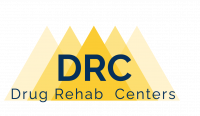How to Deal with an Angry Drunk

An angry drunk, otherwise known as a mean drunk, is an informal descriptor for those prone to outbursts of anger when intoxicated.
Like all CNS depressants, alcohol triggers a loss of control at the same as impairing cognitive function and decision making. These effects compound in the event of heavy drinking.
Today’s brief guide will help if you want to know how to deal with an angry drunk in your life.
What is an Angry Drunk?
Consuming alcohol impacts body and mind. Drinking alcohol increases impulsivity at the same time as disrupting emotional control. Resultantly, your ability to resolve conflict without aggression or violence is impaired.
Research shows that alcohol impairs memory, reasoning, and judgment.
There is no universal definition of an angry drunk. In some individuals abusing alcohol, associated insomnia and sleep deprivation might trigger aggression and anger. In others, problems with finances or interpersonal relationships stemming from alcohol abuse may lead to increased levels of anger and aggression. Arguably the worst example of an angry drink is an angry spouse, with some people using alcohol as an excuse for aggressive and unacceptable behaviors in the context of an intimate relationship.
Why Do Some People Get Mean When Drinking?
This study indicates that several different personality types may become evident when a person consumes alcohol. Among these is the angry drunk, known to the researchers as Mr. Hyde. This personality type if prone to outbursts of hostility when intoxicated. Additionally, the angry drunk often exhibits other altered tendencies when drunk.
When someone drinks alcohol, this can trigger a series of emotional responses. These responses differ from person to person. If someone tends to become angry and aggressive when sober, they are equally likely to lose emotional control when intoxicated.
Most theories concerning the link between alcohol and aggression implicate reduced activity in the prefrontal cortex. The prefrontal cortex is an area of the brain responsible for inhibition and working memory.
Beyond this, consuming alcohol can deliver the following adverse outcomes, all risk factors for anger and aggression:
- Reduces cognitive function
- Lowers inhibitions
- Increases impulsivity
- Alters regard for consequences
Angry drunks can manifest in many ways, but how can you protect yourself against this potential menace?
What to Do When Dealing with an Angry Drunk
If a close friend or family member is an angry drunk, you should never attempt to confront them or to address the issue when they are intoxicated. The likelihood of a rational interaction and a successful resolution is slim.
If you’ve been asking yourself how to deal with an angry drunk spouse, seek to physically remove yourself from the situation any time that characteristics of anger or aggression present.
At a mutually convenient time when your loved one is sober, voice your concerns about those behaviors as objectively and non-emotionally as possible. Use specific examples and offer your help throughout the detox and recovery process.
Perhaps the best way to deal with an angry drunk is to guide them towards effective treatment. With outpatient treatment proven effective for most mild and moderate addictions, they may not need to go to residential rehab. Although alcohol use disorder is a chronic and incurable disease, it also responds favorably to a combination of MAT (medication-assisted treatment), psychotherapy, and counseling.
Get Help at Drug Rehab Center
Perhaps the most effective way of dealing with an angry drunk in your life is to help them get the treatment they need to kickstart their recovery from alcoholism.
At Drug Rehab Center, your loved one can benefit from a supervised clinical detox in a licensed medical detox center near you in California. Medical detox streamlines withdrawal while also reducing risks and complications.
After detox, we can connect your friend or family member with drug and alcohol rehabs throughout Southern California. Depending on the severity of their alcohol use disorder, they may require either inpatient or outpatient treatment.
For more information, specifics of treatment programs, and insurance eligibility for alcohol rehab, contact Drug Rehab Centers right here or call (844) 739-2005.
